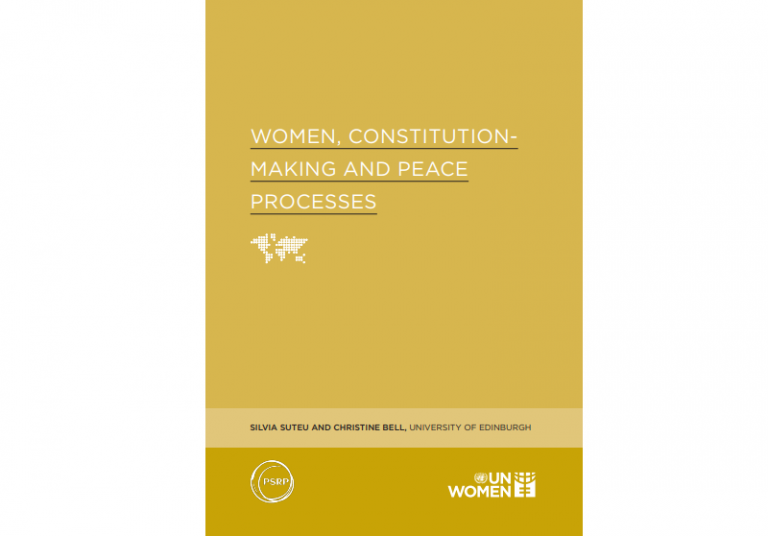Dr Silvia Suteu co-authors Briefing Paper as part of UN Women’s series on inclusive peace processes
4 January 2019
UN Women is the United Nations entity for gender equality and women's empowerment.

Dr Silvia Suteu, Lecturer in Public Law at UCL Laws, has co-authored (with Prof Christine Bell, Edinburgh Law School) a Briefing Paper titled ‘Women, Constitution-making and Peace Processes’ as part of UN Women’s series on inclusive peace processes.
The Briefing Paper explains why constitutions are important for women, in particular in post-conflict settings; how to engender both the process of constitution-making and the substance of constitutional content; and strategies for engagement, including agenda-setting and alliance-building. The publication, which is also available in Arabic, provides practical advice, further resources and references aimed at ensuring that gender equality does not remain secondary during constitution-making processes. The paper builds on Dr Suteu’s research on the theory and practice of constitutional change with a special focus on gender, democratic transitions and conflict-affected societies.
UN Women’s series on inclusive peace processes supports women’s meaningful participation and the integration of gender perspectives in peace processes that aim to end violent intra-state conflict. The key target audience is women, gender equality advocates, and others engaged in peace processes, who wish to influence negotiations with a view to addressing the particular experiences of women during conflict and achieving lasting peace process outcomes that will improve women’s lives and the lives of those around them.
This Briefing Paper is an output of the Political Settlements Research Programme at the University of Edinburgh, which is core-funded by the UK Department for International Development. Data for the Brief came from the Programme’s PA-X Peace Agreements Database. This database codes and maps all peace agreements (around 1500 documents across nearly 120 countries) from 1990 to 2016, also providing access to the full agreement text. The database is fully searchable and publicly available and supports both qualitative and quantitative examination of peace agreements.
 Close
Close

